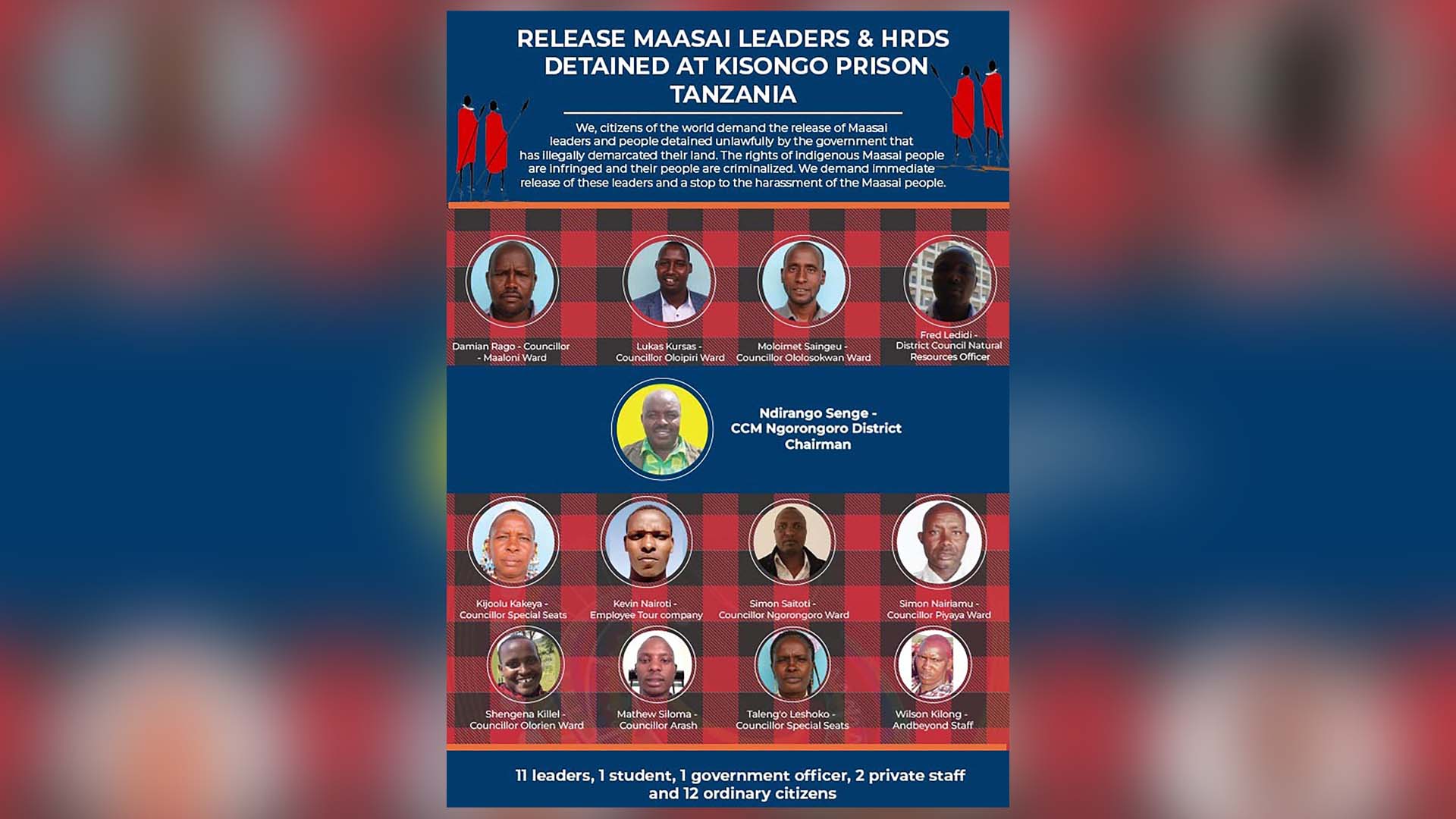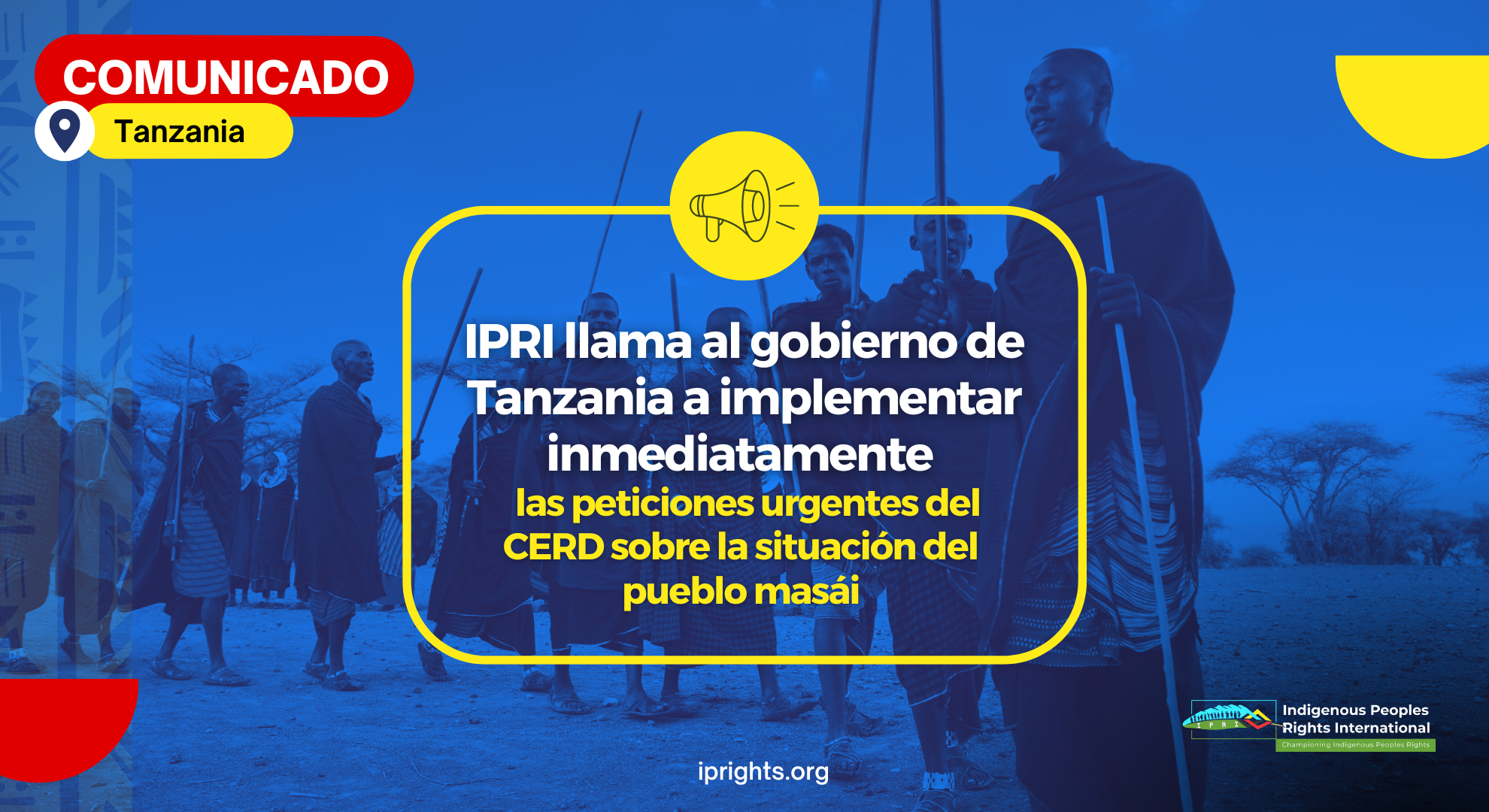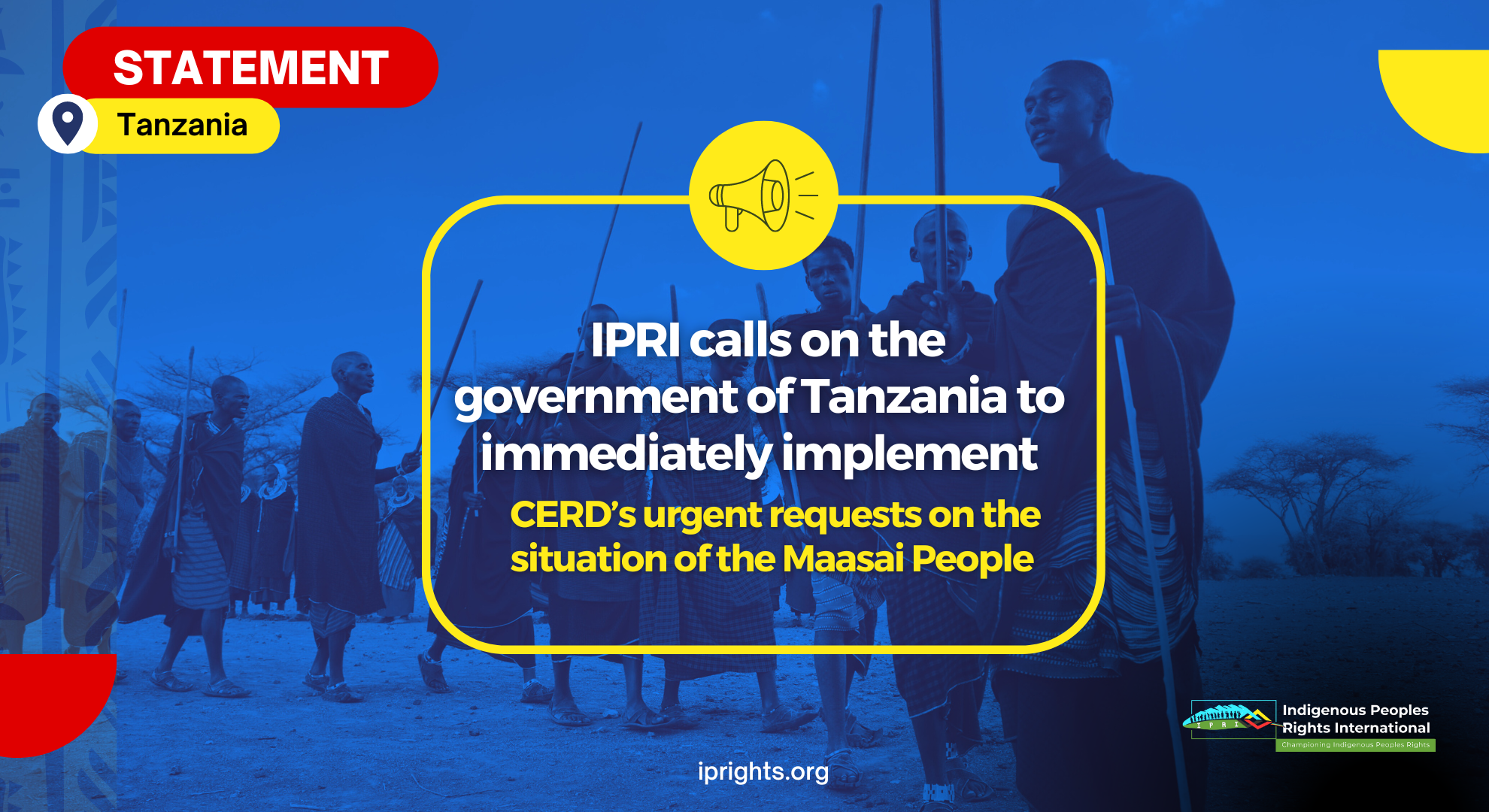The Indigenous Peoples Rights International-IPRI urgently calls on the State of Tanzania to immediately stop the criminalization against Maasai leaders and human rights defenders in the Loliondo Division. These leaders along with their communities are defending their right to live in their legally-recognized customary lands in the face of attacks to evict them.
IPRI has continuously followed up on the systematic attacks by the State of Tanzania against the Maasai. These actions, under the guise of conservation, are violating the human rights of the Maasai. These also contravene explicit orders from the East Africa Court of Justice whereby it instructed the State of Tanzania to cease and desist from evicting the Maasai; and from destroying their homesteads or confiscating their livestock on that land and restrain from harassing or intimidating the Maasai.
Regrettably, in spite of this order and the concerns raised by UN experts on the violent attacks by Tanzanian security forces on June 10, the government continues to criminalize the Maasai pastoralists in Loliondo. This week, 50 indigenous Maasai pastoralists -12 of whom are women- are to be taken to court for trumped-up charges, and 27 leaders and human rights defenders are facing murder charges of a police officer. These leaders were arrested the day before the murder that is being attributed to them. Last week, 72 Maasai were arrested and 22 were released on bail. More and more are facing threats of arrest and detention based on false charges.
In addition to these human rights violations, 18 Maasai indigenous pastoralists also had their livestock confiscated (totaling over 3,500 livestock) and they had to pay around 4,500.00 USD each to claim back their animals.
Joan Carling, Executive Director of IPRI, pointed out that "these attacks to the Maasai pastoralists by government forces are not only against the State’s human rights obligations but it also demonstrates the systemic racism and discrimination against the Maasai who have protected the wildlife and biodiversity in their customary lands for centuries.”
It should be recalled that these evictions are fueled by the interest of the Government of Tanzania to the establishment of the so called Pololet Game Control Area, established in indigenous peoples’ villages without their Free, Prior and Informed Consent and contrary to Tanzania’s Constitution and legislation. While the Maasai organized a series of peaceful assemblies to demand dialogue and the protection and respect of their rights, the Government did otherwise: unilaterally took violent actions to evict and relocate them to other areas without their consent.
Last June 15, IPRI - as an international organization constituted to address criminalization, violence and impunity in attacks against Indigenous Peoples - called on the Government of Tanzania to immediately withdraw all State forces from the Maasai traditional lands and engage in a constructive dialogue with Maasai leaders of Loliondo to end the conflict. As noted by Joan Carling, “the Maasai indigenous pastoralists are not criminals, and they deserve respect and peace in their territories.”
IPRI calls on the international community to condemn the attacks and violations of the rights of the Maasai Pastoralists and to urge the government of Tanzania to:
- Stop the criminalization of Maasai leaders; provide access to justice and ensure the respect for their fundamental rights of freedom of peaceful assembly, freedom of speech instead of threats and reprisals.
- Immediately drop the charges against the Maasai leaders and defenders on trial and, in consequence, release them.
- Immediately stop the violence of State forces against the Maasai.
- Provide justice and reparations to victims of the armed attack of June 9, and for those whose livestock has been killed or confiscated.
- Start a process of dialogue with the Maasai leaders based in the respect of their rights. This is the only acceptable solution in a democratic State that upholds its international human rights obligations.
- Implement the law on community land rights and other individual and collective rights of the Masai indigenous pastoralists consistent with international human rights instruments.
####
Note: The Indigenous Peoples Rights International (IPRI) is a global Indigenous Peoples organization that works to protect Indigenous Peoples’ rights and unite and amplify the call for justice to victims of criminalization and impunity. Please visit the IPRI website for more information - https://iprights.org/
Contact:
Joan Carling
Executive Director
Email:





